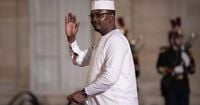On Friday, September 19, 2025, Robert Gam, the head of Chad’s Socialist Party Without Borders (PSF), broke his silence from Paris, leveling serious accusations at his home country’s government. Gam, who was released from custody in June after eight harrowing months behind bars, claimed that Chadian authorities are systematically targeting opposition figures in a sweeping crackdown. His story, told to reporters while he receives medical care in France, paints a troubling picture of Chad’s current political climate—one that’s drawing international attention and raising difficult questions about the future of democracy in the region.
Gam’s ordeal began in February 2024, when a security raid on the PSF party headquarters ended in bloodshed. According to the party, its leader Yaya Dillo was killed during the operation. Authorities, however, offered a different account, saying Dillo died while attacking Chad’s national security agency. As noted by the Associated Press, neither version could be independently verified at the time, leaving the truth shrouded in uncertainty. What’s clear, however, is that the raid marked the start of a new and dangerous chapter for opposition voices in Chad.
After his arrest, Gam says he was never told why he had been detained. This lack of transparency, he argues, is emblematic of wider abuses. "Each night masked men came ... and took people away," he recounted to reporters in Paris. "You never knew if it was for release — or for execution." It’s a chilling image, one that speaks to the fear and unpredictability that, according to Gam and other activists, now define political life for dissenters in Chad.
Gam’s experience is not unique. In recent months, Chadian authorities have arrested and detained several prominent figures, a move that activists and international observers view as a deliberate crackdown on human rights and dissent. Among those targeted is Succès Masra, Chad’s former prime minister and a leading opposition figure. Masra was recently sentenced to 20 years in prison after being convicted of incitement to violence and complicity to murder—a verdict that many see as politically motivated. The government has not publicly responded to the latest allegations from Gam, maintaining a pattern of silence that has only fueled speculation and concern.
For Gam, the trauma of his imprisonment lingers. Now in Paris, he says he’s focused on recovering his health and seeking justice. He has announced plans to sue his captors from France, signaling that his fight is far from over. His case, and those of others like Masra, have become rallying points for human rights advocates both inside and outside Chad.
Observers say the crackdown reflects the leadership style of Chad’s current president, Mahamat Déby. At just 41 years old, Déby took power following the death of his father, Idriss Déby, who ruled Chad for decades. The younger Déby’s rise came after years of military rule, and hopes for a democratic transition were pinned on the long-delayed May 6, 2025, election. That vote, however, followed three years with Mahamat Déby serving as interim president—a period marked by uncertainty and, critics say, growing authoritarianism.
Chad’s political turmoil is unfolding against a backdrop of regional instability. In recent years, neighboring countries Burkina Faso, Mali, and Niger have all experienced military coups, upending the balance of power in western Africa. The ruling juntas in those nations have expelled French and American forces, instead turning to Russia for security assistance. In this volatile environment, Chad is seen by both the United States and France as one of the last remaining stable allies in the region. This status, however, comes at a cost. As Western powers focus on maintaining security partnerships, critics argue that they have turned a blind eye to mounting human rights abuses and democratic backsliding in Chad.
The international community’s dilemma is clear. On one hand, Chad’s cooperation is vital for counterterrorism efforts and regional stability. On the other, the government’s increasingly heavy-handed tactics risk fueling further unrest and alienating its own citizens. The stories emerging from Chad—of masked men, midnight raids, and unexplained detentions—are a stark reminder of the fragility of hard-won freedoms.
Gam’s testimony has reignited debate among Chadians and international observers alike. For some, it’s a call to action—a plea for the world not to look away as political opponents are silenced. For others, it underscores the complexity of governing a country beset by security threats and surrounded by neighbors in turmoil. President Mahamat Déby, for his part, has defended his administration’s approach as necessary to maintain order in a dangerous neighborhood. But to critics, the recent wave of arrests is less about security and more about consolidating power.
Amid these tensions, the fate of Chad’s opposition remains uncertain. The May 2025 election was supposed to mark a turning point—a chance for the country to move beyond military rule and toward genuine democracy. Instead, many fear that the window for open political competition is closing. The sentences handed down to figures like Masra, and the treatment described by Gam, have cast a long shadow over Chad’s political future.
International reactions to the crackdown have been muted. Both the United States and France have expressed concern over human rights in Chad, but neither has taken concrete action in response to the recent arrests. With security interests at stake, Western governments appear reluctant to jeopardize their relationship with N’Djamena. Meanwhile, Russia’s growing influence in the region has complicated matters further, as Chad’s neighbors realign their alliances and redraw the map of power in West Africa.
For ordinary Chadians, the political drama playing out at the highest levels has very real consequences. Many worry that the government’s tactics will breed resentment and further instability, even as officials insist they are necessary to safeguard the nation. Human rights groups continue to document abuses, calling for greater transparency and accountability. Whether these calls will be heeded remains to be seen.
As Gam recovers in Paris and prepares his legal case, his story stands as a stark warning about the dangers of unchecked power. "You never knew if it was for release — or for execution," he said—a phrase that now echoes far beyond the walls of his prison cell. The world is watching Chad, and what happens next could shape the future of democracy and security in the region for years to come.


